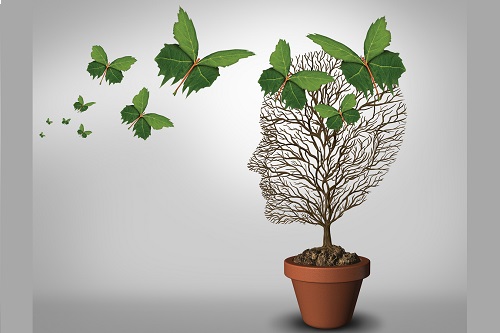AI, apps and mental health
As technology continues to develop, how far can we employ it to safeguard our mental health? This is the question being asked in South Korea at the moment, where elderly and possibly isolated people are using Naver’s new ClovaCall. The South Korean tech giant has produced Clova as an AI ‘friend’ for the elderly.
The country is ageing faster than other Asian nations, and it’s estimated that, by 2025, 20% of the population will be over 65. Many people are isolated: around one in 10 Koreans don’t currently speak to family members. At the moment, Clova is proving popular, but it’s limited to Busan. However, Naver intends to roll it out soon to Daegu and Seoul. Recipients say that the programme can answer a great many questions and chat realistically.
Clova is designed for the home market in Korea, but might similar apps be useful in assisting expats? If you’re an expat, you may be familiar with feelings of loneliness and isolation, particularly if you’re working away from your family or if you’re retired and/or widowed. Zoom calls with your loved ones may not be enough.
One such app, CatchUp, results from a 2014 study, ‘The Mental Health Status of Expatriate Versus U.S. Domestic Workers’, published in the International Journal of Mental Health, which concluded that employees living and working as expatriates experienced a higher risk of mental health and substance use disorders than their U.S. counterparts. Expats were 40% more likely to suffer from mental health issues such as anxiety, depression and stress, the comparative study discovered.
CatchUp is an emotional wellness app which seeks to improve time management, so that expats can more easily contact their families and friends back home. Designed by Ananda Mele, the app had its starting point in the comparative study and in an analysis conducted by Mele in which respondents all cited a particular moment of stress when abroad which was alleviated by contact with loved ones back home. The designer identified a preference for using specific messenger apps to undertake this contact (people tend to prefer apps with which they’re already familiar, as nothing adds to your stress levels like grappling with a new piece of technology). You should be able to find CatchUp on the Apple Store.
Another possibility is Elefriends, a supportive online community originating in the mental health charity Mind. The organisation describes it as a friendly forum in which to share your mental health struggles.
Silvercloud is another possibility. The app’s designers say that the app provides a wide range of supportive and interactive programmes, tools and tactics for mental and behavioural health issues, which address wellbeing, life balance, time management, communication skills, goal setting, communication and relationship management, anger management, stress management, relaxation and sleep management.
Catch It is a joint project between the Universities of Liverpool and Manchester, to help users better understand their moods through use of an ongoing diary.
The app was designed to illustrate some of the key principles of psychological approaches to mental health and well-being, and specifically Cognitive Behavioural Therapy (CBT).
Stay Alive is a pocket suicide prevention resource, packed full of useful information to help you stay safe. You can use it if you are having thoughts of suicide or if you are concerned about someone else.
Verywell Mind say that they rate the best overall mental health app as Moodfit, which involves a mood journal and some CBT. It’s a free app which allows you to track your moods and enables you to understand what affects them (such as lack of sleep and diet – part of the app allows you to track things like gluten intake, for example). In addition, another app being developed by Monash University, MoodPrism, is designed to help people who are dealing with stress, anxiety, or depression. The app recommends “missions” based on how you are feeling. Monash is tracking this one in order to gather more reliable, evidence-based data.
Verywell Mind also rates Talkspace for therapy, which will give you a list of therapeutic recommendations to suit your specific needs. This will connect you with a licensed, experienced mental health professional who has been trained to undertake online therapy. The cost ranges from $65 to $260 per month, but note that it is signed up with some health insurance providers, so you may be able to claim via your insurance. Another app, Sanvello, is available from Google Play or the app store, for $8.99 a month, and this also provides health and mood tracking tools, alongside tools for managing your mental health, such as mindfulness exercises.
Verywell Mind ranks the CBT Guide to Depression Self-help as the best app for depression; however, this is only available on Android devices. There are programmes also for managing Bipolar disorders, PTSD and ADHD. Calm offers a programme for managing your anxiety ($70 will get you an annual membership, but you can get unlimited lifetime access for around $400). It’s geared towards beginners in meditation, as well as those who have more experience in these disciplines.
Note that a number of these apps are only available to those over the age of 17, and several of them are on subscription. Some options are only available if you choose a more expensive premium, and some are only accessible via particular platforms. It is worth checking with your insurance provider to see if you can claim for use of these wellness programmes, but do be aware that an app has limitations. If you are using an app that does not link you to a licensed mental health professional, then this form of technology should not be regarded as a substitute for professional help such as counselling, but as part of your toolbox for dealing with mental wellness.

